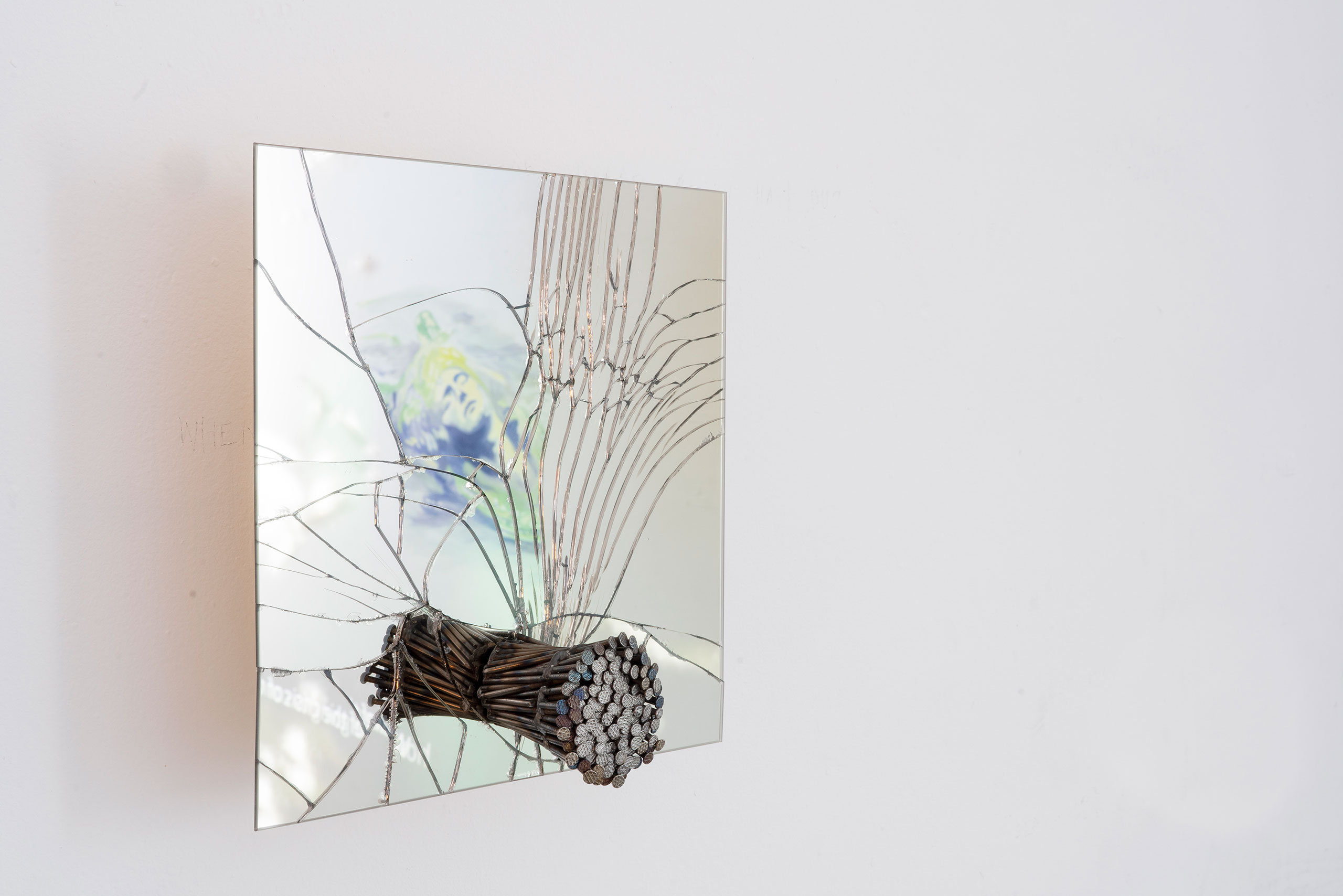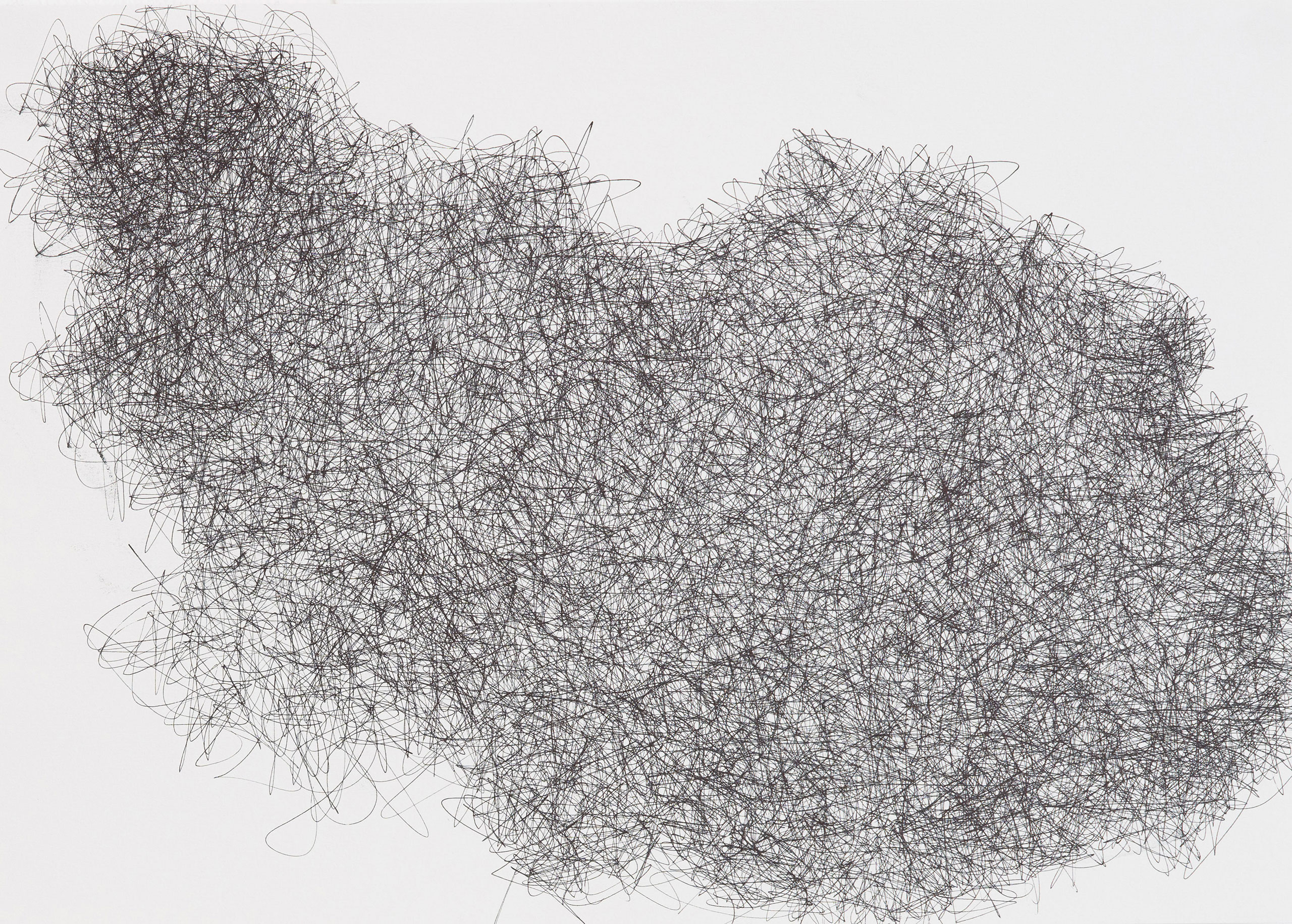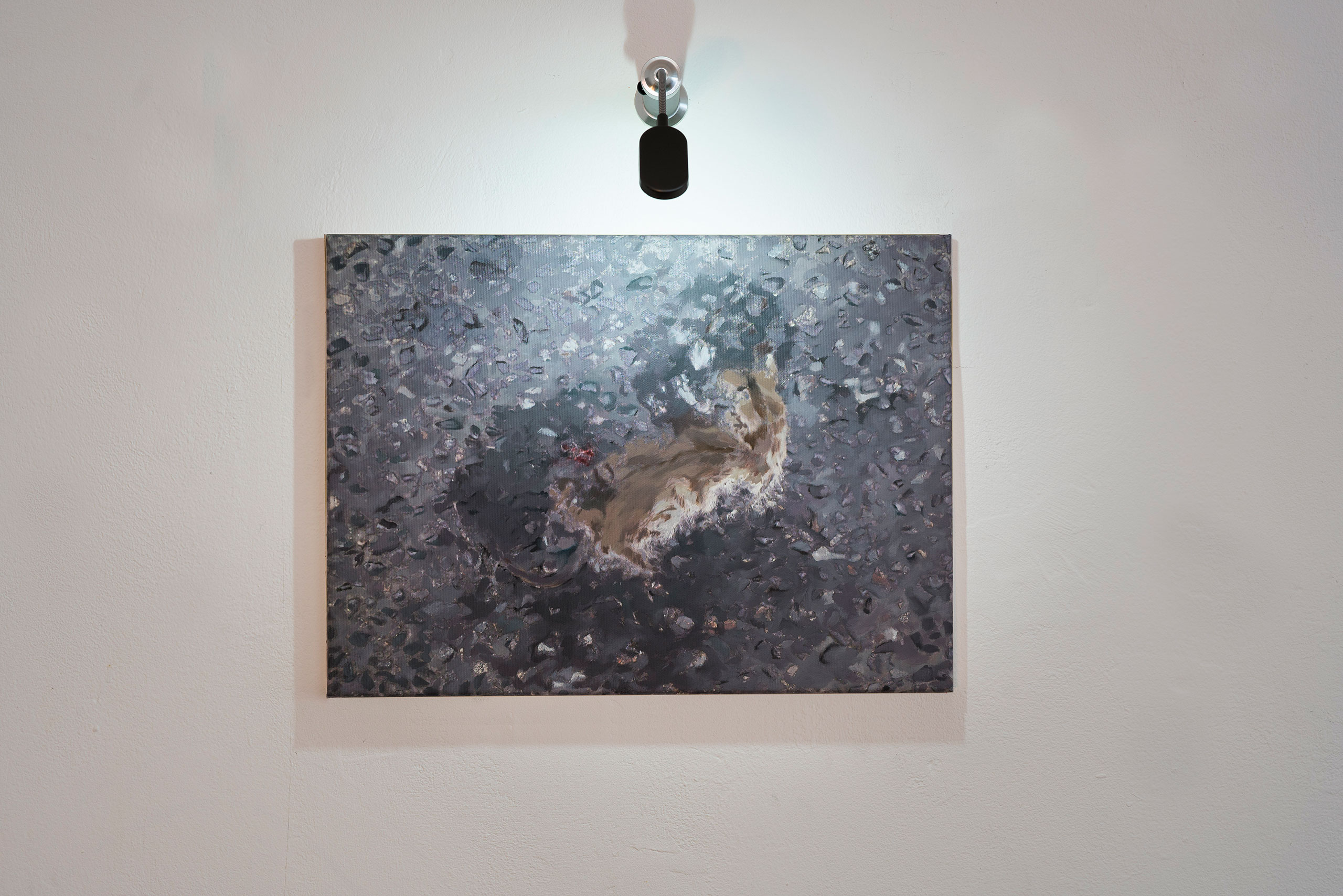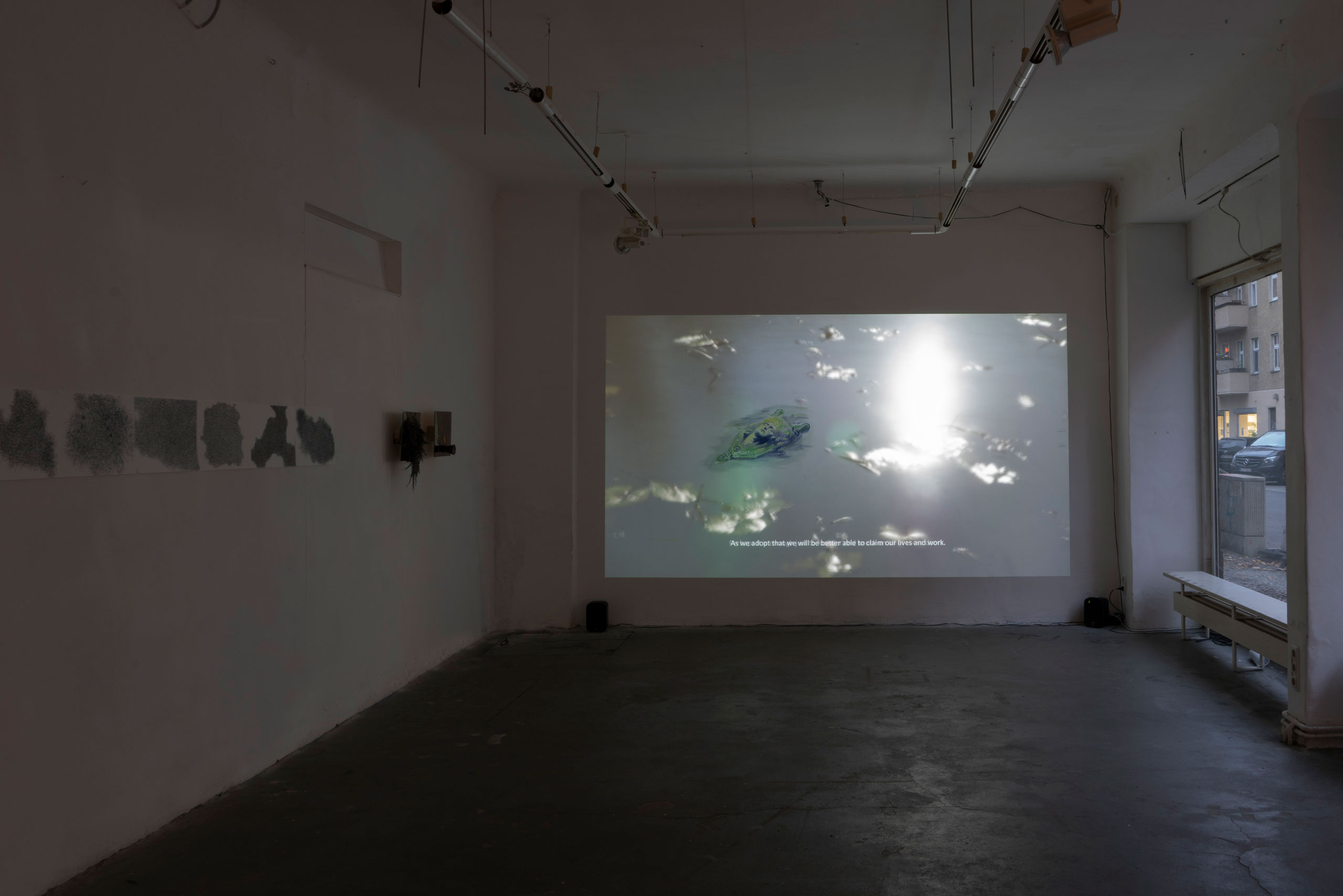Ezgi Kılınçaslan concentrates on the experience of death and mourning. The title of the show, Du hättest beinach gelebt (You Would Have Lived), refers to a verse of Paul Celan, and gives clues about the motifs to be found in the works: the fragility and the transience of human life, the magnetic pull of death, the loss of the other and the self, and the liminality experienced during the irreversible course of dying. Containing different media such as painting, drawing, video projection and wall installation, Kılınçaslan’s exhibition presents a wide range of formal resonances and also a rich interplay between literary references.







